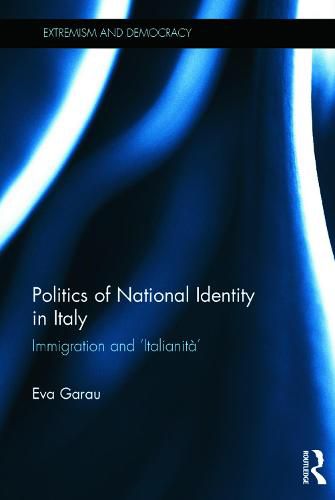Readings Newsletter
Become a Readings Member to make your shopping experience even easier.
Sign in or sign up for free!
You’re not far away from qualifying for FREE standard shipping within Australia
You’ve qualified for FREE standard shipping within Australia
The cart is loading…






This book focuses on the politics of national identity in Italy. Only a unified country for just over 150 years, Italian national identity is perhaps more contingent than longer established nations such as France or the UK.
The book investigates when, how and why the discussions about national identity and about immigration became entwined in public discourse within Italy. In particular it looks at the most influential voices in the debate on immigration and identity, namely Italian intellectuals, the Catholic Church, the Northern League and the Left. The methodological approach is based on a systematic discourse analysis of official documents, interviews, statements and speeches by representatives of the political actors involved. In the process, the author demonstrates that a ‘normalisation’ of intolerance towards foreigners has become institutionalised at the heart of the Italian state.
This work will be of particular interest to students of Italian Politics, Nationalism and Comparative Politics.
$9.00 standard shipping within Australia
FREE standard shipping within Australia for orders over $100.00
Express & International shipping calculated at checkout
This book focuses on the politics of national identity in Italy. Only a unified country for just over 150 years, Italian national identity is perhaps more contingent than longer established nations such as France or the UK.
The book investigates when, how and why the discussions about national identity and about immigration became entwined in public discourse within Italy. In particular it looks at the most influential voices in the debate on immigration and identity, namely Italian intellectuals, the Catholic Church, the Northern League and the Left. The methodological approach is based on a systematic discourse analysis of official documents, interviews, statements and speeches by representatives of the political actors involved. In the process, the author demonstrates that a ‘normalisation’ of intolerance towards foreigners has become institutionalised at the heart of the Italian state.
This work will be of particular interest to students of Italian Politics, Nationalism and Comparative Politics.